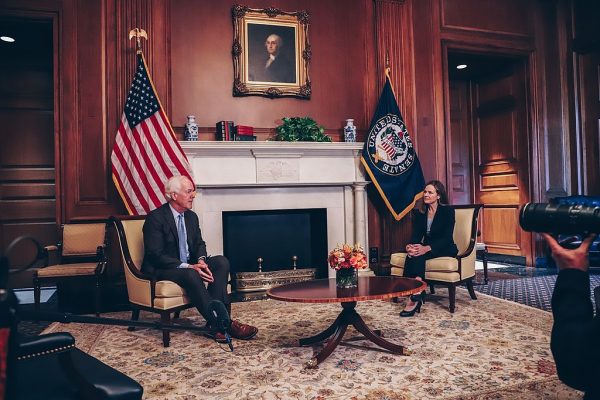In September of 2017, Supreme Court Justice Amy Coney Barrett sat before members of the U.S. Senate to answer questions. She was being considered for a seat on the 7th Circuit Court of Appeals. During the hearing, Democratic Senator Dianne Feinstein of California raised concerns over Barrett’s Catholic faith. Specifically, the senator explained that she had an ‘uncomfortable feeling’ that the now Supreme Court Justice would not be able to separate her ‘dogma’ from the law she would be charged with upholding.
“Why is it that so many of us on this side have this very uncomfortable feeling that dogma and law are two different things, and I think whatever a religion is, it has its own dogma. The law is totally different,” Feinstein said.
“And I think in your case, professor, when you read your speeches, the conclusion one draws is that the dogma lives loudly within you. And that’s of concern.”
(Catholic News Agency)
Senator Feinstein’s reference to ‘dogma’ was an allusion to the tenets of the Catholic Church, of which Barrett is a faithful member. The idea that ‘dogma and law are two different things’ implies that politics and religion should be kept at arm’s length from each other. The concept sounds reasonable on its face. But what does the separation of politics and religious faith really mean?
Religions, especially those of the Abrahamic tradition: Judaism, Christianity, and Islam, embody a worldview in which a higher authority, in the case of these faiths, God, defines the terms of reality, and consequently, truth. In fact, dogma, in the Catholic tradition, is understood as a truth appertaining to faith or morals, revealed by God (newadvent.org).
In other words, we human beings are not the authors or architects of the truth. We receive it from a higher power.
The concept of politics arose from the Greek city-state, or polis, in which philosophers such as Aristotle saw the need for politicians, or people who would direct the polis in a correct way. Here is where separation of politics and religion gets complicated. If I, as a politician, say, a senator or a high court judge, hold to a religious belief, then my understanding of the truth will most likely be subservient to what my higher power has revealed. In other words, I do not dictate the terms myself. But what if my worldview is secular or devoid of religion? Who reveals truth? Who defines reality? The only option seems to be…me. The inevitable consequence must be that I define every aspect of truth. That includes the concept of government and rule. This seems, to me, a slippery slope; one that leads to authoritarian government.
Perhaps law and religion ought both to be considered when governing. This does not mean that secular worldviews must be discarded. It means that there should be space for both in politics and governance. A mix of humbly seeking guidance from someone other than myself and boldly acting on one’s own ideas might just be good for those in positions of power. Maybe Senator Feinstein should think twice before assuming that it is concerning for the dogma to live loudly in many of her colleagues.
Editor’s Note: Since the time that Justice Amy Coney Barrett was appointed to the Supreme Court, we have continued to witness an attack on our religious freedoms. These attacks continue with the Roe v. Wade and Dobbs decisions. And these attacks on religious freedom must stop.

